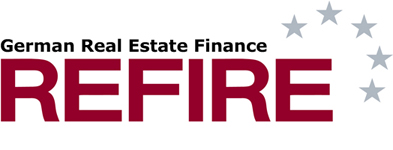
© Kzenon - Fotolia.com
Nursing Home
Various studies, including a recent one by Savills, agree that up to 300,000 new beds will be required in Germany by 2030, on top of existing supply.
The attractions of Germany's healthcare and nursing home real estate sector were the subject of a lively discussion at the recent Expo REAL in Munich. Despite the increasingly specialised knowledge required to differentiate among the different business models pursued by operators, the key appeal to investors still lies in the relative safety of cashflow streams, the audience heard.
Political interference at local and regional level and a thicket of cumbersome regulation demand ever more specific knowledge by investors to avoid falling foul of the market. However, these pitfalls were matched by evidently growing demographic demand and long-term secure cash flows, the panel speakers agreed.
Various studies, including a recent one by Savills, agree that up to 300,000 new beds will be required in Germany by 2030, on top of existing supply.
Michael Held, CEO of Terragon Investment GmbH, a specialist developer of senior-friendly housing based in Berlin, said: "The supply of suitable managed-care properties is currently heavily lagging demand." Given rising construction costs and the price of compliance with numerous regulatory demands, rental increases cannot keep pace, he said. Finding sites for building has become "like hunting for truffels in the forest". We need to focus more on creating barrier-free housing from the beginning, so that this housing will also be suitable for an ageing population in later years, he added.
Dirk Richoldt, the head of real estate finance at CBRE Deutschland, said that the German nursing home and managed-care market was increasingly popular with foreign investors, as the long-term secured cashflows represented a "surrogate form of bond investment". A CBRE report of investment in the sector in Q1 of this year showed that the high demand and lack of supply had led to yields falling, he said.
The biggest challenge in the future will be being able to attract qualified personnel, said Torsten Hamman, head of nursing home association AWO Hessen-Süd. High personnel fluctuation invariably leads to the springing up of new rival homes, as the sector is highly dependent on experienced people. This poses a constant threat to existing facilities, he said.
Jens Nagel, head of Swedish group Hemsö in Germany, said the nursing home market was urgently in need of a rejuvenation cure. With nursing homes requiring total refurbishment every 25 years, the need for reserves is huge. Not infrequently the capital expenditure necessary to upgrade existing properties is 100% of the purchase price, he said.
Lothar Lohr, head of operating property investment at Bayerische Landesbank, said that, "Despite fairly modest ticket sizes, investments need to be scrutinised carefully. Banks have been hesitant to get too deeply involved in the sector because of the notorious tendency of political regulators to interfere in the market."
This year investment in the nursing home sector has totalled 7% of all investment in German commercial property, with more than €2.4bn transacted so far – well ahead of last year's total full-year figure of €1.2bn.
Brokers CBRE expect that this year's full-year figure will top €3bn, largely thanks to two mega deals: France's Primonial REIM takeover of a 68-facility nursing home portfolio in Germany from Swiss investors for €995m, and Deutsche Wohnen's recent €420m takeover of the Pegasus Portfolio from Berlinovo.
